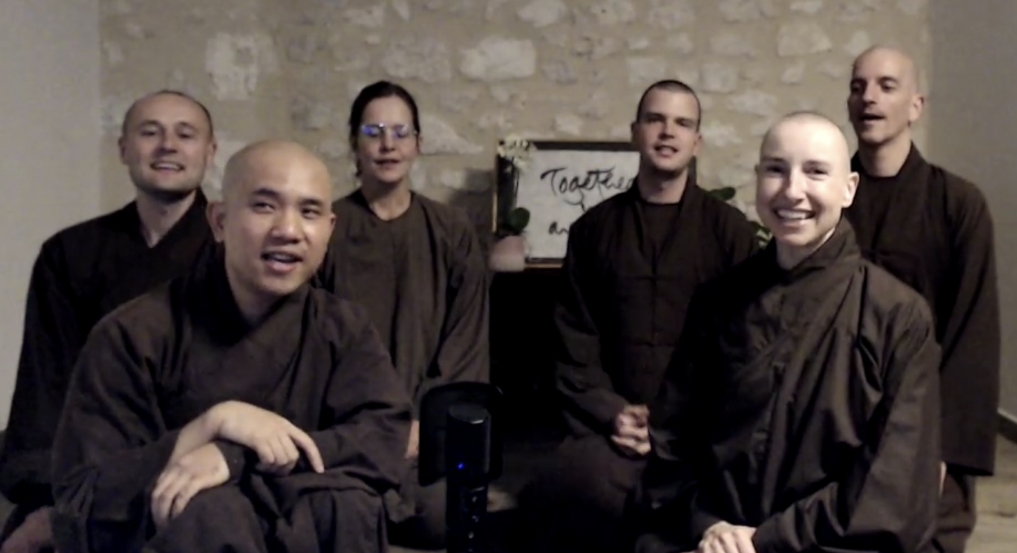Doctors, professors and monks from around the world shared ways that contemplative practices, such as behaviors like looking inward and taking pauses in one’s day, could help combat the climate crisis during this year’s Contemplation By Design Summit, which concluded on Tuesday.
The organizers designed this year’s summit to highlight the intersection of contemplative practices and sustainability in response to the Intergovernmental Panel on Climate Change’s (IPCC) most recent climate report. Attendees took away actionable skills for how they can implement contemplative practices in their own lives to combat climate change, including by adjusting their perspective of the planet, reflecting on personal behaviors and reducing consumerism.
According to Tia Rich, the director of Stanford’s Contemplation by Design program and organizer of the summit, the summit’s focus on sustainability differentiated it from the summits of previous years. With the United Nations’ 26th Climate Change Conference (COP26) beginning last Sunday, the summit was designed to highlight the connection between contemplative practices and sustainability, according to Rich.
“With this motivation, we created a summit that provides scientific research and enduring contemplative traditions’ insights,” Rich said. She hoped attendees will apply these contemplative practices and knowledge to combat climate change in their own lives.
Contemplation By Design, a multidisciplinary Stanford Medicine program, emphasizes taking pauses in one’s day to look inward, reflect and connect with others and one’s surroundings. Research has proven that these practices enhance well-being, improve professional performance and boost happiness, according to the program’s website.
Speakers taught the practices across 35 sessions from Oct. 25 to Tuesday. The sessions were held mostly over Zoom, with the exception of a few in-person yoga and meditation sessions.
Some of the sessions were led by Stanford faculty members, including art history professor Alexander Nemerov and environmental science professor Gretchen Daily. Other session leaders included psychologist Tara Brach, astronaut Steve Smith and Christine Wamsler, who helped lead negotiations for the Paris Climate Accords.
Buddhist monk Sister True Dedication emphasized the connection between contemplative practices and sustainable living during a session she led on Oct. 27. Even as her monastery sends two monks to COP26, she said she feels that policy change alone will not be adequate to truly solve the climate crisis.
“We need [climate] policies but they’re not enough,” True Dedication said. “True sustainability has to be built on insight, because then it really is coming from the heart of each person. It’s not something imposed from the outside.”
Contemplative practices can have impacts extending beyond sustainability, Rich said. She pointed to data from the COVID-19 shelter-in-place order that showed individuals who engaged in contemplative practices were more resilient, less emotionally distressed and more compliant with pandemic mandates in comparison to those who did not engage in the practices. Individuals who incorporated contemplative practices into their daily routines protected their mental health while more positively contributing to the collective well-being of the community, Rich said. According to Rich, this is evidence that contemplative practices have “untapped potential for promoting personal and planetary wellness.”
Summit attendee Carlino Cuono ’22 said he believes that the more individuals in power think holistically and contemplatively about nature and the planet, the better off the earth will be.
For Cuono, exposure to Contemplation By Design as a freshman was a life-changing experience. It “opened this whole world of a different way of approaching life,” Cuono said. “A more gentle, understanding, compassionate way of approaching things.”
By engaging in contemplative practices, students can address climate anxiety while making lifestyle changes to mitigate the effects of climate change, Cuono said. “I think Stanford generally kind of misses out on the softer side of things, and this is a cool way to start thinking that way and get some exposure to those ideas still at Stanford,” he said.
